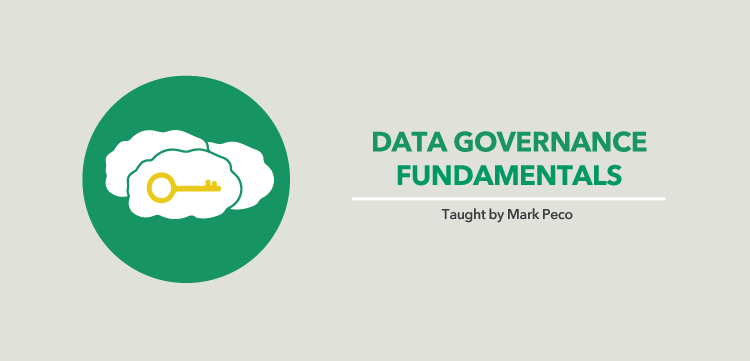Provides the necessary knowledge to help you scope, design and implement an effective program in your organization.

Enroll Now
TDWI’s Data Governance Fundamentals course provides you with the necessary knowledge to help you scope, design and implement an effective program in your organization.
This course provides the foundation to effectively implement Data Governance approaches to enable your organization to become data-driven and to effectively participate in the digital economy.
You will be able to support other data related initiatives in your organization such as data quality management, integration improvement, metadata sharing, big data analytics, business intelligence and data science by ensuring they have access to high performing data assets.
You Will Learn
- Definitions and dimensions of data governance
- Key considerations and challenges in building a data governance program
- The practices, roles, skills, and disciplines essential to data governance
- The qualities that make good data stewards and stewardship organizations
- The processes of developing, executing, and sustaining data governance
- Activities, issues, and options when building a data governance program
- How maturity models are applied for data governance
- The importance of adapting data governance for trends such as big data, cloud services, and agile development methods
Geared To
- Data quality and data governance professionals
- BI/DW managers, architects, designers, and developers
- Data stewards, data architects, and data administrators
- Anyone with a role in data governance or data quality management
Continuing Professional Education Credits: 5
Apply these credits toward your CBIP recertification. Not certified? Learn more about CBIP and how to get certified https://tdwi.org/pages/education/cbip-certification/cbip-home.aspx here.
Instructor

Mark Peco
BI Consultant and Instructor, CBIP
Mark Peco, CBIP, is an experienced consultant, educator, manager, analyst, and team builder. He holds a graduate degree in engineering from the University of Waterloo and has led numerous consulting and software development projects helping clients to adapt to fundamental shifts in business models and requirements. His experience includes strategy development, business intelligence, data warehousing, compliance, analytics, mathematical modeling, and application development. Mark’s industry experience includes the energy, metals, and financial sectors.